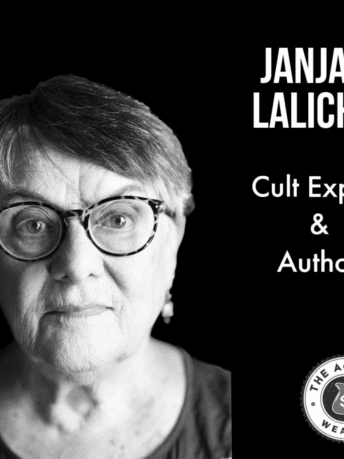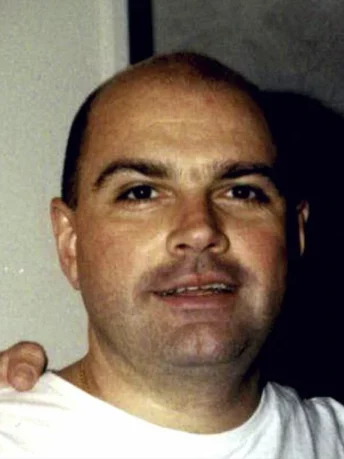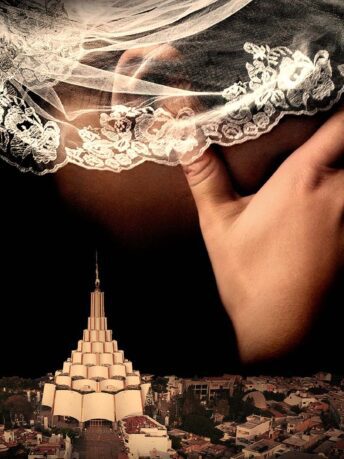This article originally appeared on vox.com.
Here is what is going on with Kanye West right now — including the domes, the new album, Sunday Service, and whether it’s a cult — and how it all fits together.
/cdn.vox-cdn.com/uploads/chorus_image/image/65433085/1147654547.jpg.0.jpg)
Of all the great questions of American popular culture, “What’s going on with Kanye West?” is truly one of the most immortal. At any given time, something is definitely going on with West — so much so that if you look away for just a moment, it can become impossible to catch up.
And over the past year, the story of Kanye West has gotten downright baroque. For months now, increasingly enigmatic headlines about West have flashed across the mainstream, disappearing as quickly as they came.
- Kanye Founds a Church!
- Kanye Founds Possibly a Cult?
- Kanye Killed it at Coachella!
- Kanye Hawks Church Merch at Coachella!
- Kanye’s New Album Announced for September!
- Kanye’s New Album Delayed!
- Kanye Something Something Something Involving Domes?
Here is what is going on with Kanye West right now — including the news about his latest album, the church/maybe cult, and the domes — and how it all fits together.
What’s going on with the new album?
West’s new album, titled Jesus Is King, came out on Friday, October 25, after a series of delays. The day before, West premiered a half-hour long IMAX documentary of the same title.
The album was originally expected to debut on September 27, based on a tweeted announcement from West’s wife Kim Kardashian West. But September 27 came and went without an album drop (although Kardashian urged fans to “have faith”). On October 24, West announced that fans could expect the new album to drop at midnight — but then tweeted that he still needed to finish a few last mixes. The album finally dropped a few hours later.
Jesus Is King is an emphatically Christian album, sampling gospel and bits of the Lord’s Prayer throughout. Spirituality isn’t a new theme for West, who’s been making Christian music since the days of his 2004 single “Jesus Walks.” But he reportedly announced at a his listening party that from now on, spirituality will be his only true theme, and that he’ll no longer be making secular music.
West’s abrupt shift toward pointedly religious work comes well into a thriving career in the mainstream. In that respect, he’s following in the footsteps of other musical legends: Famously, Bob Dylan spent the years between 1979 and 1981 releasing Gospel albums and proclaiming himself a born-again Christian, although he later returned to Judaism. West, though, seems to be proceeding more in the spirit of Al Green, who left behind his R&B career in 1976 to become an ordained minister and found a church.
Kanye West isn’t ordained. But he does seem to be founding some kind of quasi-church.
What is Sunday Service?
Since the beginning of 2019, West has spent each Sunday leading pop-up church services called Sunday Service (he’s already applied for the trademark). Sunday Service is music-focused, featuring a choir singing gospel covers of various songs both by West and by others, and also includes occasional informal prayers. It’s the songs that have made Sunday Service a social media sensation; in clips posted online by attendees — mostly Kardashian — they sound, as Jia Tolentino put it at the New Yorker, “startlingly beautiful.”
Sunday Service began in an enclosed rehearsal space, then moved to a series of secret locations: secluded fields in Calabasas or Wyoming; the Adidas headquarters. At the beginning, the event was always invite-only, with NDAs required and celebrity guests galore — Courtney Love, Brad Pitt, Idris Elba, and Busy Phillips have all attended — but the public got to join this April when West brought Sunday Service to Coachella. And lately, West has been hosting Sunday Service open to the public at venues across the country, both sacred and secular.
Sunday Service is nondenominational, but it’s emphatically Christian. And insofar as it is “about” anything, it’s about celebrating the music of the black church. Even when there are prayers, it’s the music that’s at the center of the service.
There is also something going on with domes???
West seems to be in the midst of a particularly utopian moment. Earlier this year, he built a trio of wooden domes on his property in Calabasas, based on the domes of Star Wars’s Tatooine. The domes could, West told Forbes in July, be used as living spaces for the homeless. No details ever emerged explaining how exactly West planned to use his domes to generate affordable housing, but according to TMZ, he believed they had the potential to break down the barriers between classes.
(West also wanted a dome to perform in at Coachella. When festival organizers were unable to deliver, he pulled out of his scheduled gig as headliner and only agreed to show up to perform at all when given a hill to use for Sunday Service on Easter Sunday.)
Those domes in Calabasas, however, are no more. After West’s neighbors filed a series of noise complaints, a state inspector came by to see the construction and determined that it violated building code. TMZ confirmed that all of the domes were torn down in September, although the site speculates that it’s possible West will return to the project on the new property in Wyoming he purchased this summer.
The domes aren’t West’s only utopian project, anyway. Forbes reports that he is also hard at work on the future of sneakers: “a shoe made out of algae that will biodegrade completely over time in landfills—or almost immediately if sprayed with a certain type of bacteria,” according to the magazine.
Where is all this interest in religion and utopianism coming from?
Per Kardashian, West has “had an amazing evolution of being born again and being saved by Christ,” and Sunday Service started as a way “just to heal himself.” Since then, West has decided to open the service to friends and family, and then to the public. “It started off healing for him, and now it’s become something that he really wants to share for everyone else,” Kardashian said on The View in September.
What West is healing himself from is not clear, but the past few years have been fraught for him. In 2016, while on his Saint Pablo tour, West would routinely stop his concerts to deliver increasingly incendiary speeches to the crowd, at one time apparently suggesting that Jay-Z might assassinate him and another time saying that if he had voted, he would have voted for Donald Trump. Then he canceled his tour in the middle of a performance and was hospitalized for what was described at the time as a “psychiatric emergency.”
West continued to support Trump after Trump took office, donning the MAGA hat and taking meetings in the Oval Office. Just last year, he declared that he believed slavery was “a choice” and called for the 13th Amendment, which abolished slavery, to be abolished itself.
West’s Trump support was toxic for his brand. “These are not stray thoughts,” wrote Ta-Nehisi Coates at the Atlantic last year after West met with Trump in the Oval Office. “They are the propaganda that justifies voter suppression, and feeds police brutality, and minimizes the murder of Heather Heyer. And Kanye West is now a mouthpiece for it.”
Around the same time that West was making headlines for his politics, he began speaking publicly about his mental health and struggles with addiction. He revealed that he suffered from an opioid addiction after getting liposuction in 2016. (Notably, West’s mother died after complications from liposuction and breast reduction surgery in 2007.) He announced that he had been diagnosed as bipolar and described it as his “superpower,” then said that he had been misdiagnosed and was only sleep deprived. (He has since said that he really is bipolar, although his treatment plan does not involve medication.)
Neither West nor Kardashian has said that West needed to “heal” himself from any of what happened between 2016 and 2018 specifically. But what we know of West’s life in those years suggests that it was tempestuous at best. And Kardashian seems to be implying that Sunday Service and West’s new outlook on life are a direct reaction to that very tempest.
How does a church fit into the Kardashian-West family business?
The extended West-Kardashian-Jenner clan is no stranger to the church business. Kim Kardashian’s mother Kris Jenner is the founder of the California Community Church, a venture that gossip blogs generally refer to as a “tax shelter,” where members are required to tithe either $1,000 per month or 10 percent of their annual income. Kim herself says she gives 10 percent, and it’s one of the charities she routinely donates to.
Is Kanye West maybe starting a cult?
Probably not! But … it’s not totally implausible.
“It’s got the early trappings [of a cult], I guess we could say,” Janja Lalich, a cult expert and a sociology professor at California State University, Chico, told Vox over the phone.
To be clear, we are not saying that that there have been any reports of Sunday Service being dangerous or harmful. But what’s on the public record about Sunday Service and about West’s background includes a few details that Lalich says are cult red flags. Where it gets tricky is that most of those red flags are pretty normal things for a celebrity to do — they just get a lot more complicated once religion enters the picture.
To begin with, West has a history of playing with Jesus iconography, as in his 2013 album Yeezus (a portmanteau of West’s nickname, Ye, and Jesus) which included the song “I Am a God,” featuring God. (West says he wrote the song in an act of defiance after he got snubbed at Paris Fashion Week.) In 2006, he appeared on the cover of Rolling Stone wearing a crown of thorns. One of his earliest and most admired singles was 2004’s “Jesus Walks.”
All of this behavior can be, and usually is, written off as standard hip-hop braggadocio. But Lalich says it’s also a cult warning sign when the leader of a religious movement makes a habit of “associating himself with higher religious figures and principles.” In other words, when the guy who keeps comparing himself to Jesus starts a church, it’s not irrational for people to raise their eyebrows.
Secondly, there’s the exclusivity of the whole scene: all those A-list celebrities, the oft-cited NDA policy. Even as more public Sunday Services start to emerge, they remain star-studded events. That’s a normal way for celebrities to build buzz around a new venture, by making it seem as cool and exclusive as possible. But Lalich says it’s also one of the strategies that cult leaders use to draw people into their churches, via the implication that attending will set you up for the same kind of success that its existing members have attained. (See, for example, Scientology.)
Thirdly, there’s the merch issue. The Sunday Service choir wears a standard uniform of West’s Yeezy clothing line in what appears to be a straightforward advertisement, and fans can purchase “church clothes” from West’s website: $50 socks that say “Jesus Walks,” and $225 hoodies that say “Holy Spirit.”
Again, it’s very normal for a celebrity to sell merch and monetize their brand. But when a religious leader does it, and also explicitly marks spending money on their merchandise as an act of religious faith, things get a little more worrisome. As Lalich points out, “People beginning to dress a certain way, having a certain look associated with them” — and having to give money to the leader of their movement in order to do so — is one of the earliest signs of a cult.
And finally, Sunday Service isn’t associated with any particular Christian denomination. That means West isn’t responsible to anyone besides himself if something goes wrong within his fledgling organization or if anyone happens to abuse their power. In “legitimate churches,” says Lalich, “you have a place to complain to. But these smaller churches that sometimes get very big don’t have any kind of mechanism to hold the leaders accountable.”
None of these red flags mean that West is starting a cult. “It could just be a passing fancy,” says Lalich. “It depends on how much people get truly involved and how much he takes advantage.”
So what would it take to be sure that Sunday Service is definitely a cult? Basically, we’d need to know that West or someone else who is high up in Sunday Service is actively taking control of their followers’ lives, and that followers have begun policing one another in ways they don’t do in legitimate churches.
“If you’re a Catholic, you’re not supposed to use contraception. But nobody’s going into your bedroom to see if you’re using contraception, right?” says Lalich. “When things are unhealthy, there’s a lot more of people telling on each other, spying on each other, reporting on each other, that make it like you’re no longer really a free individual.”
There’s no reason to think that Kanye West plans to incorporate the surveillance and control that characterizes a true cult into his Sunday Service. But intentionally or not, the way he’s built the movement so far means it has the potential to develop in that direction.
Regardless, West appears to be committed to Sunday Service — and to Christianity in general — for the foreseeable future. What remains to be seen is if the whole dome thing is going to last, too.






